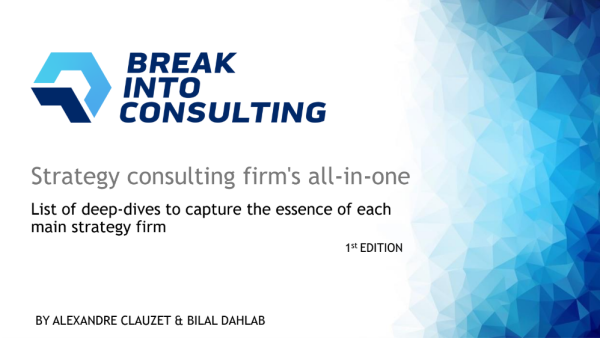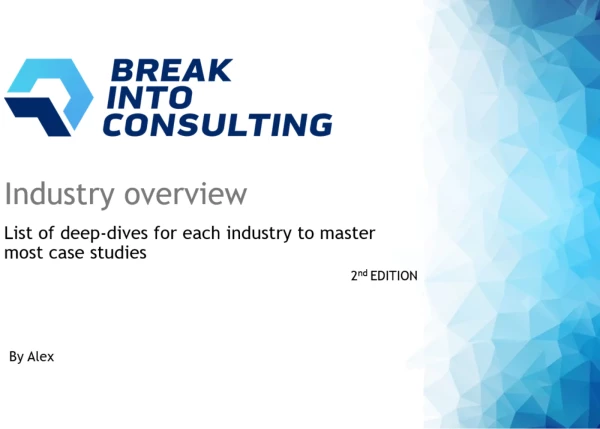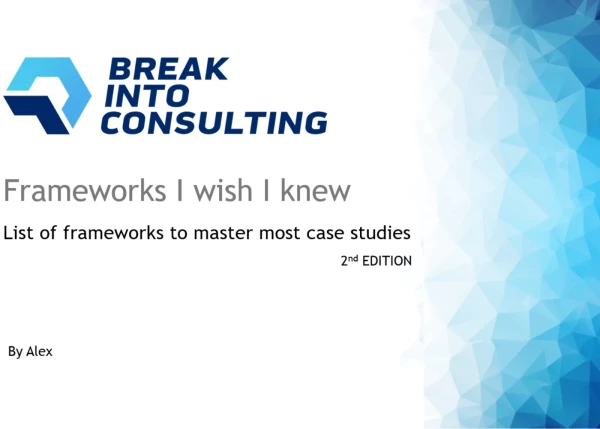Hi guys,
I am struggling with initial structure. I have read Victor Cheng, went through his LOMS, read Case in Point, soon to acquire "Interview Math" by Lewis C Lin, did 25 cases (around 8 with actual McK consultants) but still I seem like to miss the initial structure's point. Whenever I am doing brainstorming/idea generation I am MECE, but whenever I do initial structures I am not. How can I improve on this? I am not super bad, but let's say medicore.
What do you recommend on reading?
How to best structure my steps to improve?
How did you acquire having a strong upfront structure?
I still have around 24 days until my first round, so hopefully I am not hopeless. :)
Thanks,
Levi
(edited)











And don't forget about various industries - they might impact the structure. The best source of industry knowledge is the companies annual reports